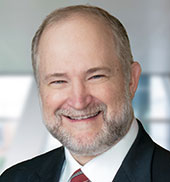In response to the COVID-19 pandemic, the Centers for Medicare & Medicaid Services (CMS) issued almost 200 “blanket” waivers which automatically apply to health care providers including hospitals, other healthcare facilities, and healthcare professionals. These blanket waivers are effective through the duration of the federal Public Health Emergency (PHE) declared by the Secretary of the US Department of Health and Human Services (HHS), which has been extended for 90-day periods since the onset of the pandemic and is currently extended through April 16, 2022. While HHS has not given any indication of an end date for the PHE, HHS has stated that it will provide at least 60 days’ notice prior to such date.
While a significant number of the blanket waivers are likely to expire along with the expiration of the PHE (e.g., those relating to provider licensing and enrollment and the suspension of enforcement activities), there is a likelihood that some of the changes made by blanket waivers will continue in effect past the end of the PHE through new laws including telehealth expansion and the relaxation of other laws.
Telehealth. See an overview of the relevant activity regarding telehealth expansion below:
- On March 15, 2022, President Biden signed a spending package into law which extends certain telehealth blanket waivers for 151 days after the end of the PHE. The extended waivers address the following:
- Expanding the originating site definition to include any site at which the patient is located;
- Expanding the eligibility of certain healthcare facilities and providers to furnish telehealth services;
- Delaying the 6-month in-person requirements for furnishing mental health services through telehealth;
- Extending coverage and payment for audio-only telehealth services; and
- Allowing the use of telehealth services to meet the face-to-face requirements for hospice care.
- We also posted a blog in April 2021 that discussed permanently expanded Medicare coverage for certain telehealth services.
- States too, such as Illinois and Arkansas, have codified certain telehealth waivers initially put in place at the onset of the pandemic (e.g., waivers allowing telehealth services to be provided to a patient in any setting and by any licensed health care provider).
- Prominent health care associations, including the American Hospital Association, have urged both Congress and CMS to pass laws and regulations codifying many of the telehealth blanket waivers, as well as to continue to exercise enforcement discretion during a period of transition for those blanket waivers that will expire.
- Last month (Feb. 2022), Congress introduced legislation that would extend certain Drug Enforcement Administration telehealth prescribing waivers for an additional two years following the end of the PHE.
These actions show that both lawmakers and health care industry stakeholders believe that the increased access to telehealth services provided by these waivers will continue to benefit patients beyond the time frame of the pandemic and provide some indicia that at least some of the telehealth waivers which were extended for an additional 151 days after the end of the PHE may become permanent.
Relaxation of other laws. There has also been a push by stakeholders to extend or make permanent certain non-telehealth blanket waivers also aimed at increasing access to health care. These waivers include, for example, expanding access to hospital at home programs by suspending the requirements that nursing services be provided on premises at all times, modifying scope of practice limitations on nurse practitioners to be no more restrictive than what is allowed under state law, and allowing rural hospitals to increase bed capacity when an emergency requires such action. The federal legislation signed yesterday extended the 340B eligibility exception for certain hospitals through the end of 2022, allowing hospitals that lost their 340B eligibility due to a drop in their disproportionate share adjustment percentage as a result of COVID-19 to continue to access the 340B drug discounts.
While health care organizations should start making plans for the end of the PHE and the blanket waivers that came along with it, there’s reason to be cautiously optimistic that at least some of the CMS blanket telehealth waivers, and perhaps other CMS blanket waivers, will continue past the end of the PHE or become permanent.


















